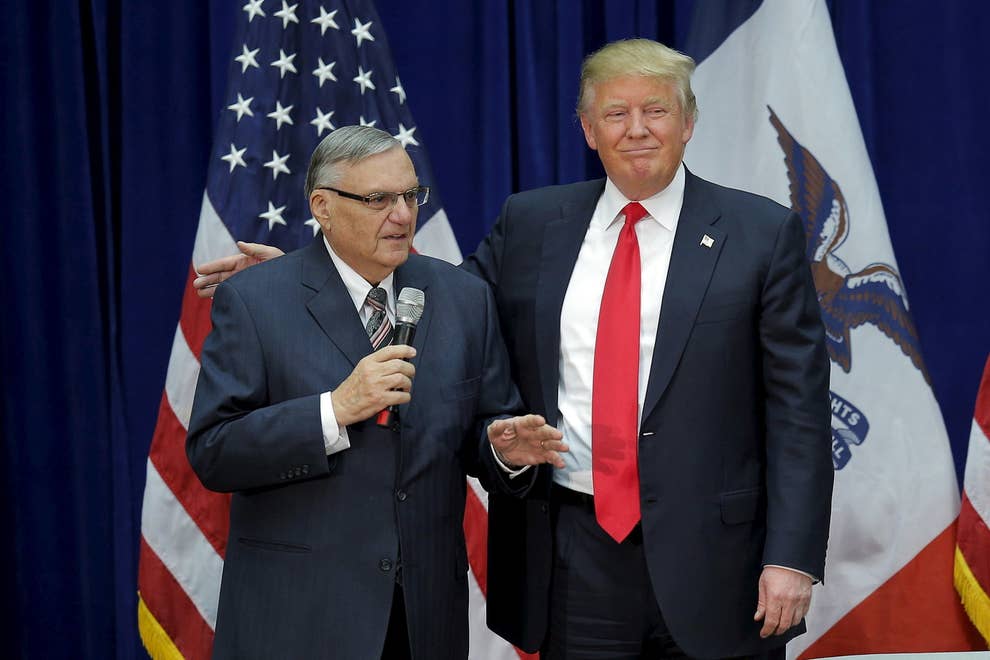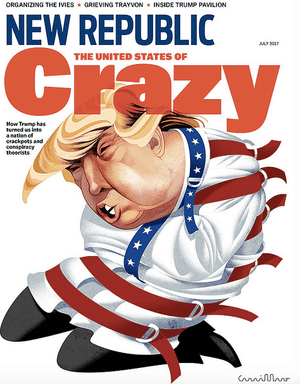Elizabeth Williamson at the Times on Pres-i-dent Trump and the babysitters.
The epigraph:
“You treat me like a baby! Am I like a baby to you? I sit there like a little baby and watch TV and you talk to me?”
— Donald Trump to Paul Manafort in “Devil’s Bargain,” by Joshua Green.
Why yes, Don, of course you’re a baby to us. You act like a baby. You talk like a baby, you have no idea how to think, just as a baby does.
He lives in the White House, where he gets two scoops of ice cream instead of one for dessert. He is commander in chief, eating “the most beautiful piece of chocolate cake” with the Chinese president while he fires missiles at Syria. As he told the Russians, “people brief me on great intel every day,” with lots of pictures and “tweet-length sentences.” He has a “beautiful Twitter account.” Uh-oh!
Mr. Trump’s staff can’t control him, so they coddle him. They make sure he starts his day with a packet of good news about himself, compiled by Republicans who get up early to search for positive stories, headlines, tweets or, failing those, flattering photos.
It’s a full-time job for one of his aides, who makes a very nice salary for doing it.
Mr. Trump likes “unstructured time” to watch TV. His favorite station is Fox News Channel but he’ll watch any show where they talk about him. If they say something bad about him, he tweets. That makes everyone nervous. His staffers try to limit his screen time during the day and keep him from “calling old friends and then tweeting about it.” But then it’s off to bed with his phone, and “once he goes upstairs, there’s no managing him.” Uh-oh!
Trump says the job is hard. People yell at him. He gets cranky.
He screams at the television, at staffers, and at Republican legislators, demanding that somebody make it stop. But when Mr. Trump’s advisers tell him what he might do, he likes doing the opposite — like when he fired James Comey, the director of the F.B.I., or stared at the solar eclipse. After he blurted out secrets to Russian officials in the Oval Office, his team worried about “leaving him alone in meetings with foreign leaders.” H. R. McMaster, the national security adviser, tries to correct the president and keep him out of trouble. The president calls General McMaster “a pain.”
When Mr. Trump has one of those “moods where sometimes he wants to blow everything up,” his staff takes him outside. He sat in an 18-wheeler in the White House driveway one time. “Honk, honk!” went the horn. He sat in a red fire truck, too. “Where’s the fire?” Mr. Trump asked Vice President Mike Pence. “Put it out fast!” Mr. Trump went to Saudi Arabia, where they gave him steak and ketchup and put his photo on the side of a building. But most of all Mr. Trump likes when his staff plans field trips to rallies in red states, where he can campaign for president again.
But even that nice military General Kelly can’t control Trump himself. Uh-oh!







